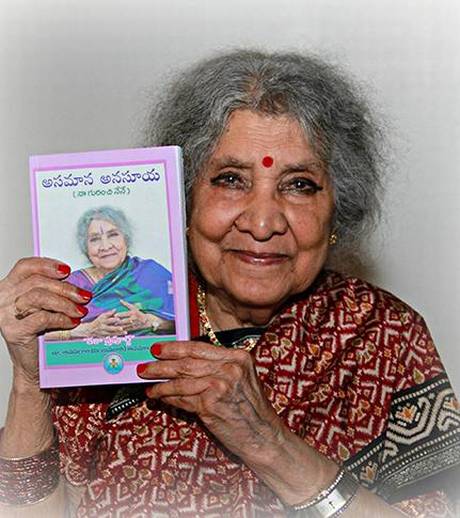Several people condole the death of veteran singer
Born and brought up in Kakinada, Vinjamuri Anasuya Devi used music as a tool to spread the message of social equality in the days when the society considered women coming out of their homes as a taboo. The literary and cultural environment around her made Anasuya Devi learnt classical music along with her elder sister Seetha in the childhood and later the sisters lent their voices to many light music compositions of their maternal uncle the renowned poet Devulapalli Krishnasastry. With Krishnasastry developed a penchant for Brahmo Samaj and penned songs for the organisation that worked for social renaissance, they sang those songs in many public meetings.
From there, Anasuya Devi left for the then Madras from where she went to Houston in the US and stayed with her daughter Ratna Papa till her last breath there on Sunday morning. “Anasuya Devi was a courageous woman, who broke all the shackles and moved freely on a par with men in those days. Her independent nature made her special among the family and her voice added beauty to many lyrics of Krishnasastry,” recalled Tallavajhula Patanjali Sastry, a close relative of the family and writer and environmentalist from Rajamahendravaram.

Anasuya Devi’s father Venkata Lakshmi Narasimha Rao was a theatre artiste and he had influenced the family members including women to learn languages and read literature. “Anasuya Devi brought out her autobiography ‘Asamana Anasuya’ three years ago, in which she gave a detailed description of her journey from Kakinada to Houston,” said Mr. Patanjali Sastry.
“Seetha and Anasuya popularised folk music in the combined Andhra State. They were the first singers to give concerts with folk songs,” recollected V.A.K. Ranga Rao, renowned historian of music, who shared an association of 65 years with the Vinjamuri family. “The tune of popular song ‘Manasuna mallela.. .’ from the classic ‘Malleeswari’ was based on ‘Chandana charchita..’ a song rendered by Anasuya in 1937.
Similarly, the one ‘Eruvaka sagaro.. .’ from ‘Rojulu Marayi’ was based on ‘Chukkala Cheerakattukoni’ a private song rendered by Seetha and Anasuya in 1932. I have those gramophone records with me,” he said, while paying homages to the singer.
source: http://www.thehindu.com / The Hindu / Home> News> States> Andhra Pradesh / by K N Murali Sankar / Kakinada – March 25th, 2019